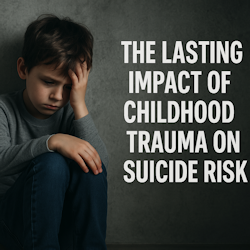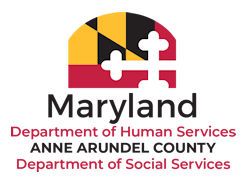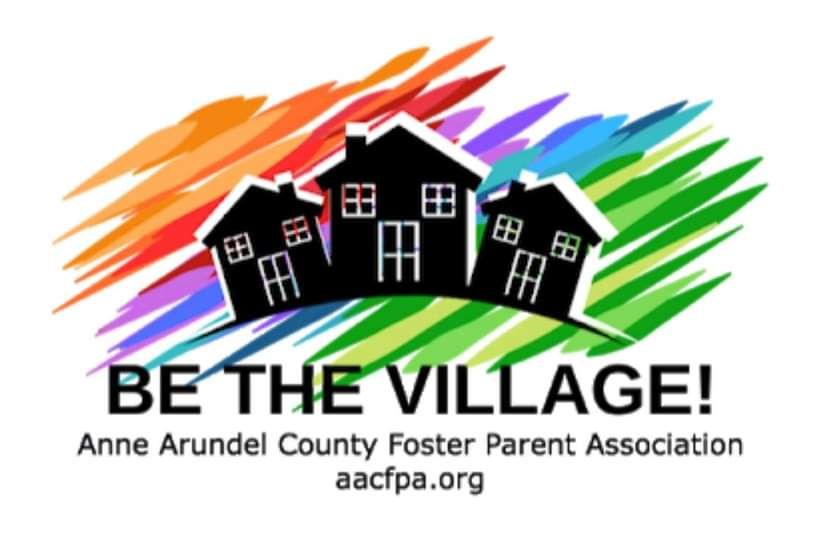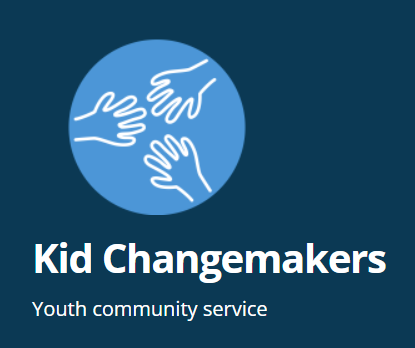The Lasting Impact of Childhood Trauma on Suicide Risk
Childhood experiences shape the foundation of who we become as adults. While nurturing environments foster resilience, love, and growth, traumatic experiences in childhood can leave invisible scars that last a lifetime. One of the most devastating consequences of unresolved trauma is the heightened risk of suicide. As we recognize Suicide Prevention Month, it is critical to understand how childhood trauma impacts mental health and to highlight the importance of prevention, intervention, and support.
Understanding Adverse Childhood Experiences (ACEs)
 In the 1990s, researchers from the Centers for Disease Control and Kaiser Permanente launched the landmark Adverse Childhood Experiences (ACEs) study. They surveyed over 17,000 adults about their childhood experiences, including abuse, neglect, and household dysfunction. The findings were groundbreaking: the higher a person’s ACEs score, the greater their risk of developing serious health issues, including depression, anxiety, substance use, and suicidal behavior.
In the 1990s, researchers from the Centers for Disease Control and Kaiser Permanente launched the landmark Adverse Childhood Experiences (ACEs) study. They surveyed over 17,000 adults about their childhood experiences, including abuse, neglect, and household dysfunction. The findings were groundbreaking: the higher a person’s ACEs score, the greater their risk of developing serious health issues, including depression, anxiety, substance use, and suicidal behavior.
For example, individuals with four or more ACEs are many times more likely to attempt suicide compared to those with no reported trauma. This direct correlation highlights how early trauma becomes a profound public health issue, not just an individual struggle.
The Long-Term Effects of Trauma
Trauma experienced during the formative years of childhood can change the way the brain develops. It can alter stress response systems, making individuals more vulnerable to overwhelming emotions, hypervigilance, and difficulty coping with life’s challenges. Over time, this can manifest as:
- Persistent depression and hopelessness
• Anxiety and panic disorders
• Difficulty building healthy relationships
• Substance misuse as a form of self-medication
• Physical health issues such as heart disease and chronic pain
• Suicidal ideation and attempts
The Foster Care Connection
Children and youth in foster care often experience higher rates of trauma than the general population. Separation from family, instability, and past experiences of neglect or abuse compound the emotional toll. Without adequate support, these experiences can lead to long-term struggles with mental health, identity, and belonging. This reality underscores the importance of organizations like The Blue Ribbon Project, which works to provide not only immediate essentials but also compassion and stability for youth navigating the foster care system.
Adult Survivors of Childhood Trauma
Trauma does not disappear when a child becomes an adult. Many survivors carry unresolved pain into their later years, struggling with self-worth, trust, and mental health challenges. For some, these unresolved issues increase vulnerability to suicidal thoughts and behaviors. Yet, with the right resources, healing is possible. At The Blue Ribbon Project, our Adult Survivors of Childhood Trauma Support Group provides a private, safe community where survivors can share their stories, find understanding, and begin or continue their healing journey.
Healing and Building Resilience
Although trauma can profoundly affect one’s life, it does not define a person’s future. Healing is possible through supportive relationships, mental health care, and community connections. Effective interventions include:
- Trauma-informed therapy such as cognitive behavioral therapy (CBT) or EMDR
• Peer support groups where individuals share lived experiences
• Mindfulness, exercise, and healthy routines to regulate stress
• Access to resources that address both mental and physical health needs
When survivors are empowered with tools for healing and resilience, they can break cycles of trauma and build lives of hope, purpose, and strength.
The Blue Ribbon Project’s Role
At The Blue Ribbon Project, we believe that no child or survivor should walk their journey alone. Through programs like Backpacks of Love, Mirah’s Closet, and our mentorship and support initiatives, we aim to meet immediate needs while fostering long-term healing. Our Adult Survivors of Childhood Trauma Support Group also provides a private, safe space for survivors to connect, heal, and grow. By bridging resources with compassion, we strive to reduce the impact of trauma and prevent the devastating consequences, including suicide.
Resources and Call to Action
If you or someone you know is struggling, please reach out for help. The Suicide & Crisis Lifeline is available 24/7 by calling or texting 988. Trained counselors are ready to listen and provide immediate support.
This Suicide Prevention Month, we encourage you to learn more about childhood trauma, support survivors in your community, and get involved with The Blue Ribbon Project. By raising awareness and offering compassion, we can create a future where every child and survivor knows they are not alone, and where healing is always possible.
To learn more, or explore volunteer opportunities, visit www.blueribbonproject.org.





















